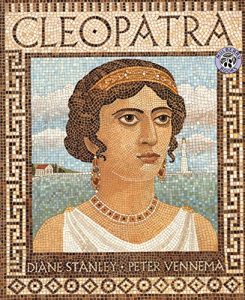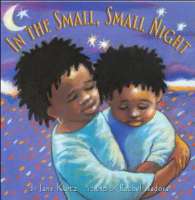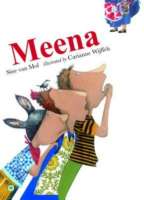 Cleopatra’s name still glitters across history, evoking opulence, ambition, and tragedy. Raised in the shadow of the mighty Roman Empire, she dared to dream of a world united under Egyptian rule. She almost succeeded, and if she had, we would live in a far different world today. Cleopatra was not the renowned beauty of legend–her strength lay in her intelligence, courage, and charm, and she would need all three in her short and perilous reign. She became Queen of Egypt at eighteen and by twenty had been driven from her throne. But she raised an army and won the support of the great Julius Caesar, who helped her return to rule. We will never know what these two brilliant and ambitious people might have accomplished together, for Caesar soon fell to Roman assassins. Instead, it was Mark Antony, another famous Roman, who risked everything with Cleopatra in pursuit Of world power. In this latest of their “distinguished storybook biographies” (New York Times), the authors’ meticulous text and Ms. Stanley’s majestic illustrations capture the brilliance of Cleopatra’s life. From the enchantments of the royal court at Alexandria to luxurious cruises up the legendary Nile, from the intrigues of the Roman marketplace to a desperate sea battle with a shocking end, these award-winning biographers tell the tragic story of one of the most fascinating women of all time.
Cleopatra’s name still glitters across history, evoking opulence, ambition, and tragedy. Raised in the shadow of the mighty Roman Empire, she dared to dream of a world united under Egyptian rule. She almost succeeded, and if she had, we would live in a far different world today. Cleopatra was not the renowned beauty of legend–her strength lay in her intelligence, courage, and charm, and she would need all three in her short and perilous reign. She became Queen of Egypt at eighteen and by twenty had been driven from her throne. But she raised an army and won the support of the great Julius Caesar, who helped her return to rule. We will never know what these two brilliant and ambitious people might have accomplished together, for Caesar soon fell to Roman assassins. Instead, it was Mark Antony, another famous Roman, who risked everything with Cleopatra in pursuit Of world power. In this latest of their “distinguished storybook biographies” (New York Times), the authors’ meticulous text and Ms. Stanley’s majestic illustrations capture the brilliance of Cleopatra’s life. From the enchantments of the royal court at Alexandria to luxurious cruises up the legendary Nile, from the intrigues of the Roman marketplace to a desperate sea battle with a shocking end, these award-winning biographers tell the tragic story of one of the most fascinating women of all time.
Primary (ages 6-9)
Material appropriate for primary age groups
Dear Baobab
Maiko has left his village in Tanzania far behind, moving to Canada with his aunt and uncle. When he thinks of home, he thinks of the beautiful big baobab tree at the center of the village. In his new home, Maiko feels a connection to the small spruce tree in the front yard—it’s seven years old, the same age as he is. The tree sings to him and shares his secrets. When he learns that the roots of the tree are growing too close to the house, putting the little spruce in danger of being cut down, Maiko tries to save it. He knows all too well what it’s like to be small and planted in the wrong place.
In the Small, Small Night

Kofi can’t sleep in his new home in the United States, so his older sister Abena soothes his fears about life in a different country by telling him two folktales from their native Ghana about the nature of wisdom and perseverance.
Meena

The children of Fly Street fear and taunt their neighbor Meena, thinking she is a witch, but when they meet her granddaughter and taste her cherry pie, they learn the truth.
See the review at WOW Review, Volume IV, Issue 4
How Do You Feel?
Feelings. There are a lot of them in this book! You might feel confident or shy, bored, curious, worried–even silly! Or maybe you feel sad or lonely one day, and happy the next! There are many ways to answer the question, How do you feel?
Night Knight
Bedtime becomes an unforgettable k-nightly adventure! Come on a bedtime adventure with one little knight as he rides through forests to reach his bedroom, battles crocodiles to brush his teeth and climbs the tallest tower to get into bed. This exciting and imaginative bedtime tale is told through Owen Davey’s charming and witty words and illustrations.
Maisy Goes On A Sleepover
Maisy is going on her first sleepover! She packs her overnight bag (including Panda, of course!) and goes to Tallulah’s house for a night of playing games, eating delicious food, reading bedtime stories and more. Sleepovers are fun, and they’re even more with Maisy!
My First Soccer Book
This lively and information packed book is superb introduction to soccer and will excite readers hungry to develop their skills and knowledge.
- Perfect for any child who is a soccer enthusiast
- Covers all the information a young player needs, including basic skills such as passing, heading and shooting; tactics and techniques; rules and referees; and world players and tournaments.
- Clear, accessible text written by Clive Gifford–author, former coach and lifelong fan
- Spectacular photography by Michael Wicks
The Hero Of Little Street
When a boy being chased through present-day London seeks refuge in the National Gallery, a dog escapes from the painting of one Dutch master and together they leap into the painting of another, where their adventures in seventeenth-century Delft are a prelude to returning to London and continuing the chase.
The Crossing
This young, lyrical picture book reveals the adventure and natural wonders that Lewis and Clark encountered on their Western expedition in the early 1800s. Told from the point of view of Jean Baptiste Charbonneau, the baby on Sacagawea’s back, this story offers a fresh perspective of a young country and gives voice to a character readers will already be familiar with–at least visually (the baby is shown on the golden Sacagawea dollar).
